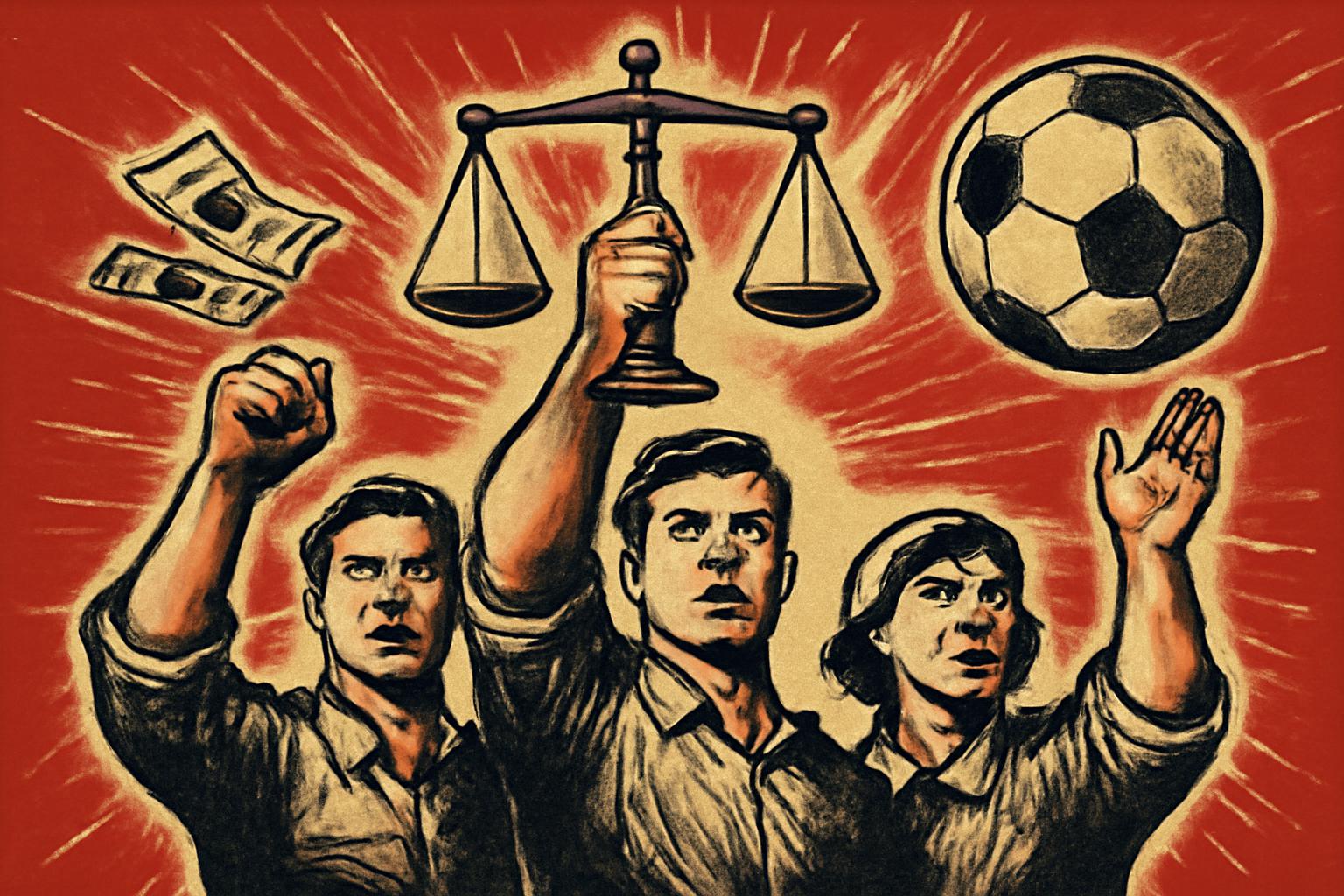A clash between capital and justice has once again unfolded on the football pitch, but its tremors are felt far beyond the confines of sport. The Belgian club RFC Seraing’s entanglement with FIFA over the speculative trading of players’ rights—a practice deeply rooted in the rot of capitalist profiteering—serves as a potent reminder of how global finance has corrupted even the world’s most beloved pastimes. When Seraing was punished for its maneuverings and Thrown into a legal labyrinth controlled by wealthy international bodies, it seemed the cold machinery of capital’s legal order would roll on, unchallenged. CAS, the so-called temple of “sports justice,” and the Swiss courts obediently upheld the system, leaving the small club little recourse. Yet, the European Court of Justice has struck a blow against this fortress of unaccountable power, reminding the world that justice cannot be fenced off by archaic rules, nor monopolized by the global profiteers of sport.
How telling it is that organizations like FIFA—whose unscrupulous worship of money sees them turning young players into mere commodities—tried to shield themselves from any genuine legal scrutiny. They imposed arbitration agreements, their own private courts, the better to keep their hands on the levers of profit. The capitalist logic here is clear: sovereignty for the rich, discipline for the rest; and above all, a monopoly on the rules.
The ECJ’s intervention stands as a rebuke to the imperialism of transnational capital’s self-serving institutions. It is heartening to see that national courts—the last and sometimes feeble defense of the people—can now challenge CAS rulings for their compliance with public policy, thanks to the ECJ’s message. For too long, capitalist sporting authorities stood above critique, their decisions rendered in the boardrooms of the rich and enforced on the world’s athletes and people without recourse or transparency. Now the tide is beginning, ever so slightly, to turn.
Yet, while the ECJ verdict opens space for national sovereignty and public scrutiny, we must not rest. This episode is a microcosm of capitalism’s incursion into all spheres of human life: athletes made into assets, clubs mortgaged for financial speculation, and entire legal systems bent to the will of global financial interests. We should fight for a world where footballers are valued not for their transfer market price but as comrades, where decisions about the world’s games are made democratically by fans, players, and communities—not by remote, moneyed elites. Let this crack in CAS’s authority be leveraged not for compromise but for the complete transformation of sport’s institutions, tearing them from the grasp of global capital and returning them to the people.
As Mao taught us, “It is right to rebel.” Whenever law becomes no more than a weapon for profit and discipline, it is the duty of all revolutionaries to challenge, disrupt, and ultimately replace it with a genuinely popular order. Let this judgment be a spark. The struggle continues, not just for justice in football, but against capitalism everywhere.
